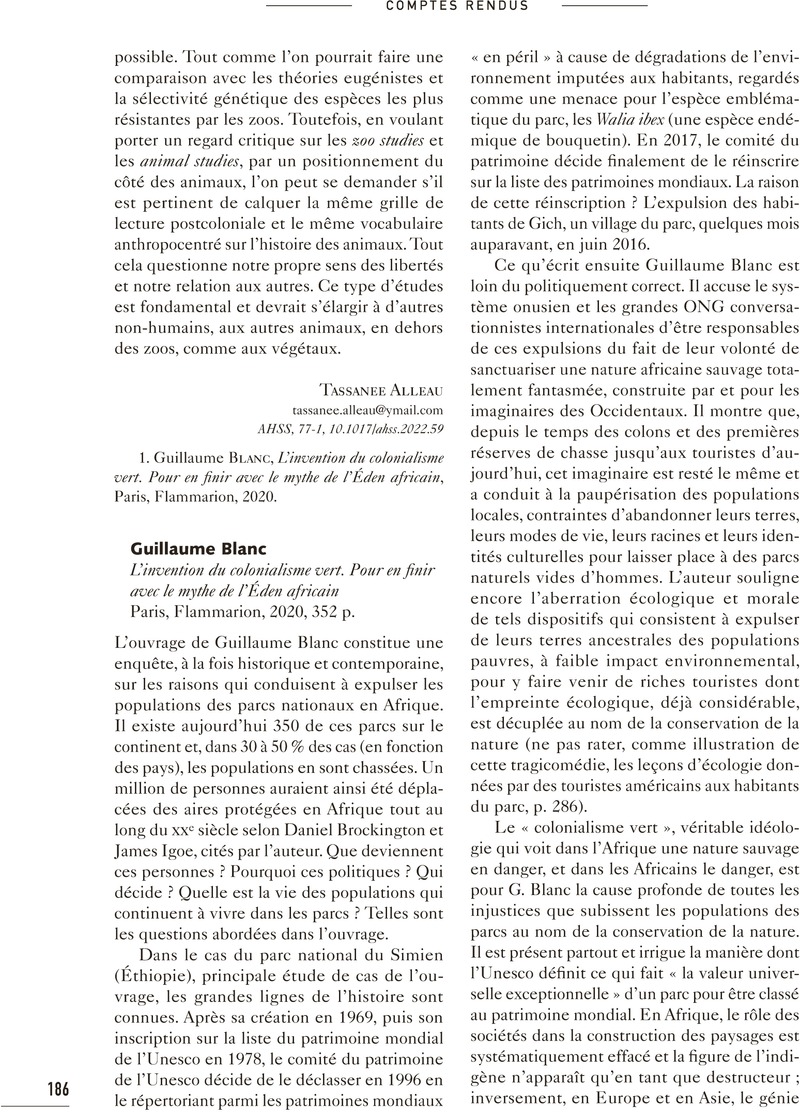No CrossRef data available.
Published online by Cambridge University Press: 22 November 2022

1 Jeff Schauer, « ‘We Hold It in Trust’: Global Wildlife Conservation, Africanization, and the End of Empire », Journal of British Sudies, 57-3, 2018, p. 516-542, ici p. 542.
2 Voir respectivement : Richard Grove, Green Imperialism: Colonial Expansion, Tropical Island Edens and the Origin of Environmentalism, 1600-1800, Cambridge, Cambridge University Press, 1996 ; Frédéric Thomas, « Protection des forêts et environnementalisme colonial : Indochine 1860-1945 », Revue d’histoire moderne et contemporaine, 56-4, 2009, p. 104-136 ; Roderick P. Neumann, « The Postwar Conservation Boom in British Colonial Africa », Environmental History, 7-1, 2002, p. 22-47 ; Estienne Rodary, L’apartheid et l’animal. Vers une politique de la connectivité, Marseille, Wildproject, 2019.
3 Alfred W. Crosby, Ecological Imperialism: The Biological Expansion of Europe, 900-1900, Cambridge, Cambridge University Press, [1986] 2004 ; Peder Anker, Imperial Ecology: Environmental Order in the British Empire, 1895-1945, Cambridge, Harvard University Press, 2001.